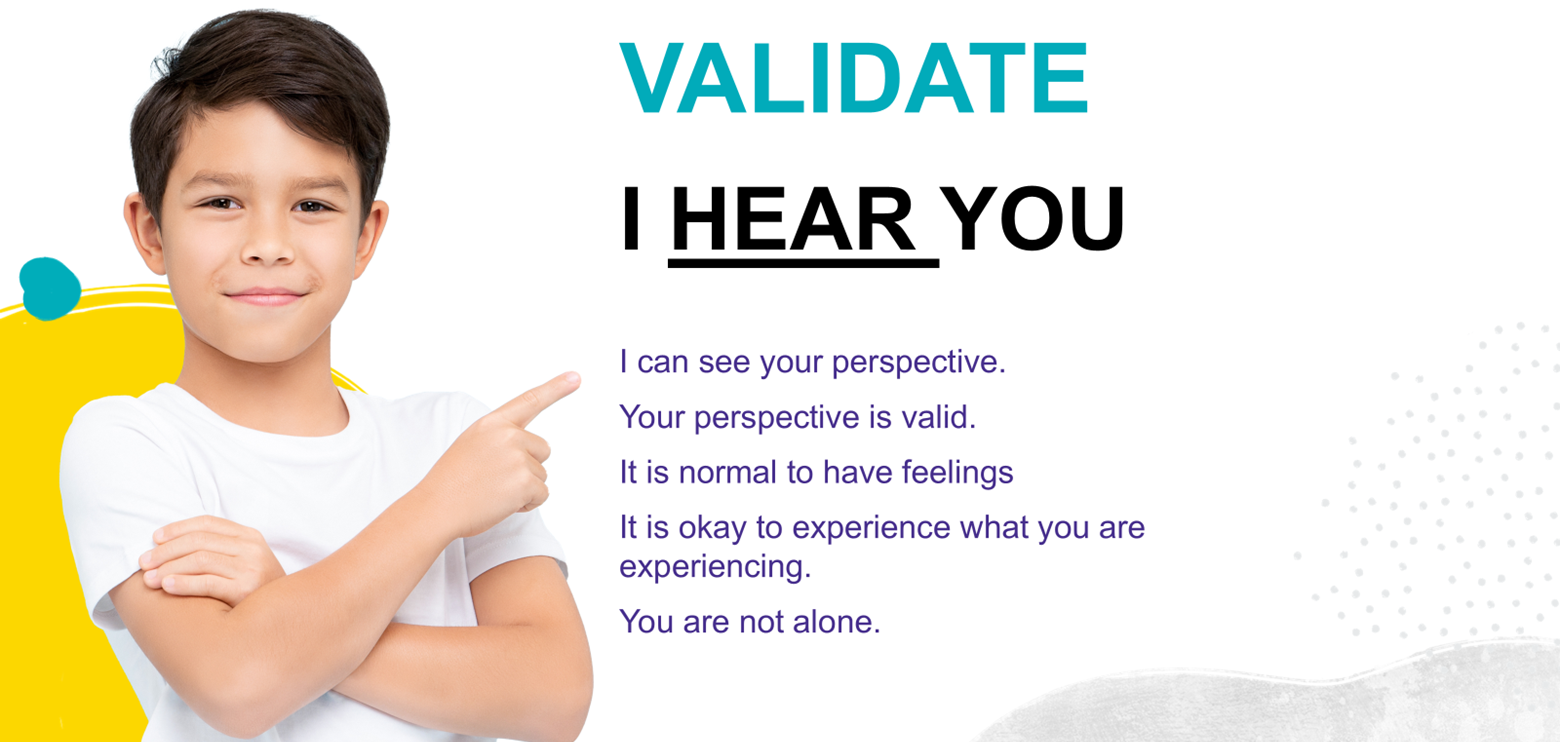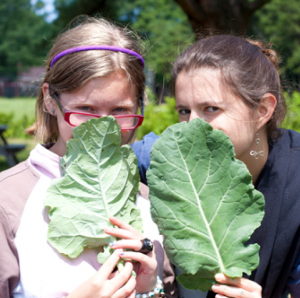Acknowledging & Validating Quick Training
(adapted from The Flourish Lab curriculum)
When children are experiencing large feelings, one of the most supportive and effective strategies to help them return to baseline is to acknowledge and validate their emotions.

Acknowledgement includes “naming the feeling” and sounds like …
- What are you feeling?
- It seems that you are frustrated, is that correct?
- I can see you’re struggling right now. What’s going on?
- What made you feel this way?
- What are you angry about?
- I notice you’re extra quiet today, what’s going on?
- You have a lot of energy today. Tell me about it.

Validating names why the feeling makes sense and sounds like …
- It makes sense you’re angry if you feel like you didn’t get enough time to complete the project.
- It’s understandable that you’re frustrated. You want to do well and you’re having a difficult time getting the answer correct.
- If you think that no one likes you, then of course you feel lonely.
- If you thought the game wasn’t fair, then it’s understandable that you’re upset.
- I know you were counting on extra time outside today; it makes sense that you’re disappointed.
- I realize that your friends mean a lot to you; so it’s normal to feel frustrated that she’s upset with you.
- You get to see your favorite cousin after school? Well then of course you’re excited!
When youth are experiencing a particularly large emotion, you may need to return to acknowledging and validating a few times–that is normal and okay. You can repeat yourself and continue using a kind, steady tone. Sometimes it just takes more than one conversation for the young person to feel like they can move forward.
Marla Goldstein
Youth Resilience Coordinator


